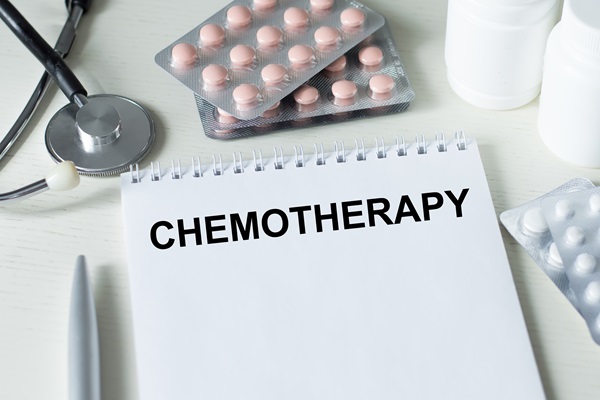What Is Chemotherapy Treatment?

Chemotherapy treatment is a type of cancer treatment overseen by an oncologist that uses drugs to kill cancer cells and prevent tumor growth. Like any treatment, there are some side effects. However, as one of the most effective cancer treatments, the benefits of this therapy usually outweigh the side effects. Understanding how treatment works can help patients prepare and ease their anxieties surrounding this treatment.
Chemotherapy: An overview
Chemotherapy treatment, commonly known as chemo, uses powerful drugs to kill cancer cells by keeping them from growing and dividing. Many chemotherapy drugs are available; they work in different ways, using one or a combination of these drugs. An oncologist (cancer specialist) may refer to chemotherapy as standard, traditional, or cytotoxic. Chemo is a systemic treatment, meaning the drugs travel through the bloodstream to all parts of the body. This allows it to kill cancer cells that have spread (metastasized) to parts of the body other than where it originated.
The role of the medical oncologist
An oncologist is a doctor who specializes in diagnosing and treating cancer; a medical oncologist is a healthcare provider who plans and oversees a patient's chemotherapy treatment. Medical oncologists will prescribe which chemotherapy drugs to use, the dosage, and the schedule depending on several factors, such as the patient's age, type of cancer, cancer stage, body weight, and general health. They can advise the patient on the specifics of the chemotherapy drugs they will be using and what side effects to expect.
How chemotherapy works
There are over 100 different drugs that a medical oncologist may prescribe as part of chemotherapy. These drugs work by targeting cells at different stages in the cell cycle. They are good at killing fast-growing cancer cells. However, these drugs cannot tell the difference between cancer cells and normal cells. Therefore, normal healthy cells get damaged along with the cancer cells, which causes unpleasant side effects. Luckily, the normal cells will recover over time, while mutated cancer cells usually do not.
The goal of chemotherapy
Chemotherapy can be administered alone or along with other cancer treatments, such as radiation therapy and surgery. The goal of chemotherapy is to eliminate the cancer or control it.
Curative intent
Getting the cancer to go away and never come back is the desired outcome of cancer treatments. When an oncologist prescribes chemo for a cancer case where permanent elimination of the cancer is possible or likely, they will describe this as treatment with curative intent.
Control/palliative
Unfortunatly, permanent elimination of the cancer is not always possible. Still, it may be possible to use chemotherapy treatment to reduce the size of tumors and keep the cancer from spreading or slow the progression, helping the patient live longer and feel better. In these cases, it is referred to as treatment with palliative intent.
How treatment works
Chemotherapy can be administered orally or topically. However, it is typically delivered intravenously. Every patient's treatment looks different depending on their type of cancer, health circumstances, and the type of chemotherapy drugs used. The treatment is generally delivered in cycles that vary in duration and frequency. A patient will undergo a period of treatment followed by a recovery period, so the body has a chance to recover.
Managing side effects
Part of a medical oncologist's job is to help the patient deal with the side effects of treatment. Though side effects vary by patient and type of chemotherapy drug, common ones include the following:
- Nausea and vomiting
- Diarrhea or constipation
- Hair loss
- Bleeding and easy bruising
- Fatigue
- Fever
- Pain
Some side effects can be prevented, and most subside after treatment. The medical oncologist will guide the patient on what to expect and may prescribe medication to help with the side effects. They may also make adjustments to treatment that may help. Ultimately, patients should make sure to get plenty of rest and stay well hydrated. Patients can also reach out with any concerns about any potential developing side effects during the treatment process.
Your guide to cancer treatment
Lindenberg Cancer & Hematology Center cares for patients during all stages of their cancer treatment journey. We realize that a cancer diagnosis can be scary, and you probably have a lot of questions, especially if this diagnosis is new. Our team is here to answer any questions you may have and help you make informed decisions about your care. We will work with you every step of the way through the entire treatment process. Call us today to learn more about chemotherapy treatment.
Request an appointment here: https://lindenbergcancer.com or call Lindenberg Cancer & Hematology Center at (856) 475-0876 for an appointment in our Marlton office.
Check out what others are saying about our services on Yelp: Chemotherapy Treatment in Marlton, NJ.
Recent Posts
Chemotherapy is an effective cancer treatment but one that is taxing on the body. Therefore, searching for "chemotherapy near me" should help you find a conveniently located facility to make receiving this treatment a little easier. Lindenberg Cancer & Hematology Center is located in the Marlton area. Our team will strive to help you through…
Our cancer center aims to alleviate the stress and burden often associated with cancer care. Unlike traditional oncology offices, we offer comprehensive care under one roof. This means you and your loved ones can access all your care needs without the added stress of moving around the city or state to consult multiple professionals. We…
Acute lymphocytic leukemia treatment comprises various methods, ranging in invasiveness. We determine the most effective method for you by assessing several factors, such as your age, cancer subtype, its stage, and what your body is able to handle. Take a look at the various treatment options our oncologist may employ to help get you into…
Chemotherapy, commonly known as "chemo," is a lung cancer treatment that uses anti-cancer drugs to kill cancer cells in the lungs and other parts of the body. It can shrink or stabilize the tumor, target leftover cancer cells after surgery, or alleviate symptoms. A chemotherapy plan is personalized to each patient's unique needs and circumstances,…


